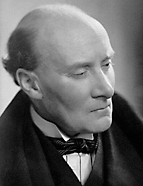

Like other British historians who have shown an interest in the Portuguese history, there is still not a systematic study about the historiographical work and thought of Raymond Beazley. However, he has been considered a “historical geographer” because of having the articulation between History and Geography as the core of his work as a historian. He focused widely on the Medieval period and on topics connected to the era of maritime expansion and colonial exploration – especially in what concerns his works about the Portuguese historical past. Beazley also had an interest, already in a late stage of his career, in contemporary subjects. We shall mention in that regard Nineteenth Century Europe and Britain (1922) and The Road to Ruin in Europe, 1890-1914 (1932). In the first work, the British historian considered the nineteenth century “a torch to light us forwards as well as backwards” and has highlighted the roles of the German and Russian spaces in the unfolding history of that century. He even refers that “this ‘Nineteenth Century’ time in Continental History from 1812 is, above all, German and Russian”, adding that the “German nationalism, directed by Prussia, gradually comes to lead the politics, as German intellect had already begun, in so many fields, to lead the thought of Europe” (Nineteenth Century…, 1922, pp. 5, 9-10). It is important, moreover, to underline his interest in the Russian historical past, visible not only in his collaboration in the extensive study Russia from the Varangians to the Bolsheviks, but also in the article “The Russian Expansion towards Asia and the Arctic in the Middles Ages (to 1500)”, published in The American Historical Review, and in multiple reviews of works about Russian history published in The Geographical Journal.
Among the works of the British historian, we can highlight, as we have previously mentioned, The Dawn of Modern Geography, published in three volumes between 1897 and 1906. This is a monumental work – perhaps the first major study of this kind –, in which Beazley addresses the history of the geographical exploration and knowledge during the Medieval period (fourth-fifteenth centuries), not only in the European space but also in a few Asian regions. In the work’s introduction, he has given a glimpse of how this is structured, dividing the Middle Ages into three different periods, and devoting a volume to each of them.
The first volume focuses on the period Beazley called “Dark Ages” (fourth-ninth centuries), as he considers that the Christian world had lagged in the geographical exploration, not only because of the “rapid, perhaps too rapid, development of the Arab mind” but also because of the work of the Buddhist propaganda. In his point of view, this period was marked by the prominence of religious conceptions in the scientific output, both at a theoretical and practical level, and by the pilgrimage and missionary journeys.
